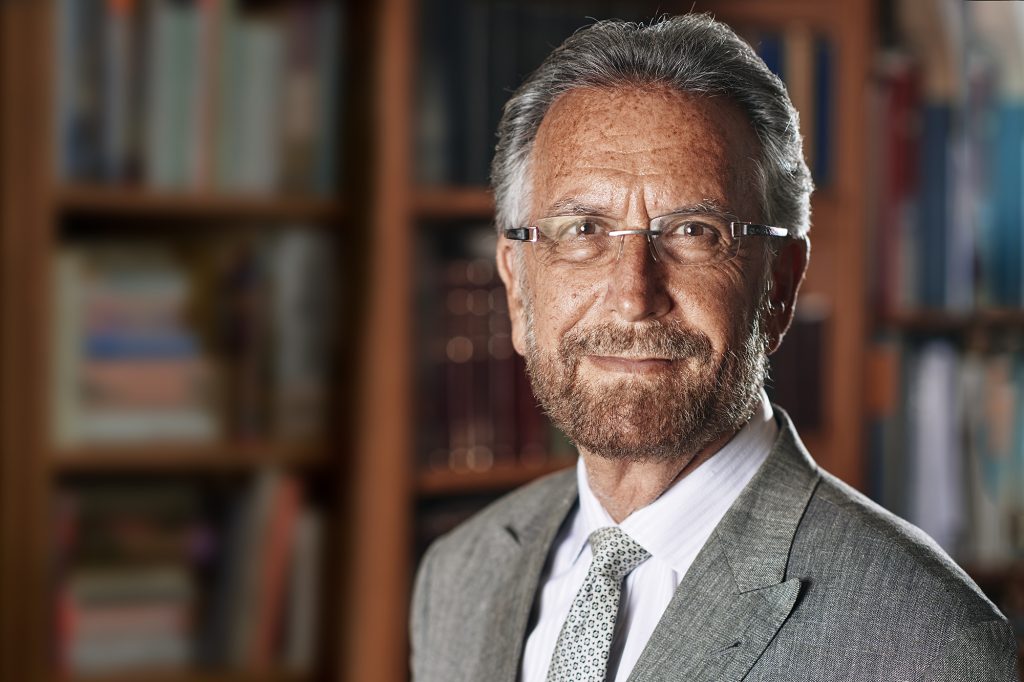By Beatrice Asamani Savage, GNA Special Correspondent, Jerusalem
Jerusalem (Israel) Jan. 3, GNA – Veteran journalist Henrique Cymerman says more Middle Eastern countries are likely to soon join the Abraham Accords to promote the peace, stability and development of the region.
During an engagement with visiting African journalists in Jerusalem, Mr Cymerman said ongoing negotiations among key stakeholders indicated that agreements involving Saudi Arabia and other influential nations may soon materialise.
The Abraham Accords, signed in September 2020, represent a groundbreaking initiative aimed at normalising relations between Israel and several Arab nations.
Facilitated by the United States, the agreements include Israel, the United Arab Emirates, Bahrain, Sudan, and Morocco.
They cover a wide range of collaborative efforts, from economic cooperation to tourism and defence.
Mr Cymerman is renowned for his deep insights into Middle Eastern geopolitics after decades of practice in the area.
The discussions with the famous author and lecturer of Spanish, Portuguese and Israeli nationality, centred on the ongoing conflicts and the prospects for sustainable peace in a region plagued by conflicts.
“We are closer than ever to achieving agreements that were unimaginable a decade ago,” Mr. Cymerman said, adding that the normalisation of relations opened avenues for economic growth, cultural exchange, and enhanced security cooperation.
He explained that the inclusion of Saudi Arabia, the custodian of Islam’s two holiest sites – Mecca and Medina – could catalyse normalisation efforts across the broader Muslim world.
“The moment Saudi Arabia decides to normalise relations with Israel, it becomes a green light for many others to follow,” he said, highlighting the importance of Saudi Arabia’s moral and geopolitical influence, particularly, in its ability to shape the views of nearly two billion Muslims worldwide.
Mr Cymerman spoke about a planned signing of a peace agreement between Israel and Indonesia, the world’s largest Muslim majority country, for October 15, 2023, which he said, was aborted because of the October 7 massacre of about 1200 people in Israel by Hamas.
He accused Iran of undermining the normalisation efforts, saying it was fighting proxy wars to derail the diplomatic process because of their avowed opposition to Israel’s existence in the region.
Referencing the recent escalation of violence, Mr Cymerman said: “The October 7 attack by Hamas was designed to sabotage these negotiations, just as similar attacks disrupted peace talks under the Oslo Agreement in the 90s.”
The Oslo Agreement of 1993 was a historic framework designed to resolve the Israeli-Palestinian conflict. Brokered by Norway, it marked the first time Israel and the Palestine Liberation Organisation (PLO) formally recognised each other.
The agreement aimed to establish a two-state solution and granted limited self-governance to Palestinians in the West Bank and Gaza.
While initially celebrated as a step toward peace, the agreement’s progress has since been stalled by political disputes, violence, and disagreements over critical issues such as settlements, refugees, and the status of Jerusalem.
Mr Cymerman called for sustained dialogue and a broader understanding of the complexities surrounding Middle Eastern diplomacy.
He expressed optimism that the Abraham Accords could eventually lead to the creation of a lasting framework for peace.
In similar discussion with the journalists in Jerusalem, Rabbi David Rosen, an inter-faith peace maker, however, described the two-state solution as a vital pathway to achieving lasting peace and stability in the Israeli-Palestinian conflict.
He cautioned that failure to implement such a solution could threaten Israel’s democratic identity and create enduring security challenges.

Rabbi Rosen emphasised that the two-state approach was in the best interests of both Israelis and Palestinians, explaining that the continued control over a hostile population without resolution would not only strain Israel’s economy and security but also erode its national ethos.
He argued that coexistence would require compromises from both sides, particularly, in territorial matters, to establish a stable and secure Palestinian state alongside Israel.
Rabbi Rosen also pointed out that pursuing absolute justice in the conflict could perpetuate tensions and mistrust.
Both communities must prioritise dialogue and mutual respect, recognising their shared attachment to the land and its history, he added.
“The goal is not just justice but peace,” he remarked. “Compromise is essential if we are to live together in harmony.”
The rabbi called on international stakeholders to support efforts toward the two-state solution, stressing its potential to foster long-term reconciliation and stability in the region.
GNA